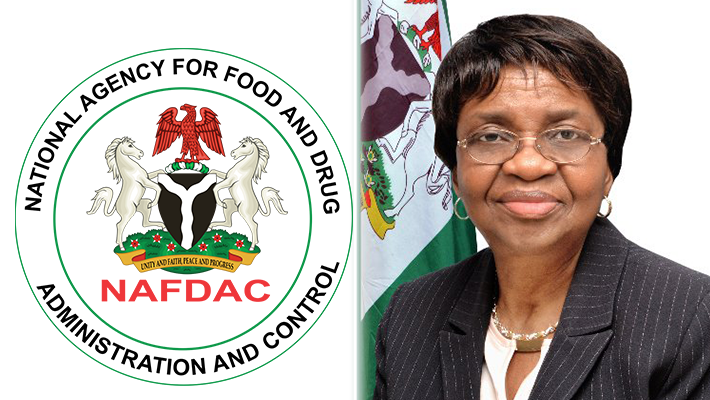Crucial Investment Sought: Agency Calls on Pharma for Vaccine Production Boost

The Director-General of the National Agency for Food and Drug Administration and Control (NAFDAC), Professor Mojisola Adeyeye, has issued a crucial challenge to pharmaceutical product manufacturers across Nigeria. Speaking at the 2025 investiture ceremony and lecture of Fellows of the Nigerian Academy of Pharmacy (NAPHARM), held at the College of Medicine, Lagos University Teaching Hospital (LUTH), Lagos, Prof. Adeyeye urged companies to make significant investments to facilitate the domestic production of human vaccines.
Prof. Adeyeye emphasized the critical need for Nigeria to become self-reliant in vaccine manufacturing, drawing vital lessons from the COVID-19 pandemic. She cautioned against waiting for another global health crisis, recalling how the country was caught unprepared during the last pandemic and had to rely heavily on international donors to combat the disease. This experience, she noted, underscored the urgent need for proactive measures to prevent similar vulnerabilities in the future.
Detailing the agency’s internal reforms, Prof. Adeyeye explained that NAFDAC’s previous structure led to inefficiencies and susceptibility to corruption. Initially, a single Registration and Regulatory Affairs Directorate was responsible for the registration of a vast range of NAFDAC-regulated products, including food, drugs, cosmetics, medical devices, herbal medicines, vaccines, veterinary products, pesticides, and other finished chemicals. This broad oversight by one director, she said, hindered efficiency and effective governance.
To address these systemic issues and enhance operational effectiveness, NAFDAC embarked on a major restructuring effort. Prof. Adeyeye first separated the Food Registration and Regulatory Affairs Directorate. However, recognizing that the remaining portfolio was still too large for optimal management, she initiated a further strategic division. In November 2024, following an assessment, evaluation, and approval by the Head of Service of the Federation, NAFDAC established a distinct Directorate for Vaccines, Biologics, and Medical Devices. This strategic move, she explained, aligns the agency with international best practices and enables NAFDAC to operate at the same rigorous level as advanced regulatory agencies globally.
NAFDAC achieved Maturity Level 3 in 2022 for medicines and imported vaccines, and the creation of this new directorate will allow the agency to be benchmarked specifically for vaccines, biologics, and medical devices.
Expressing her optimism, Prof. Adeyeye shared her aspiration for Nigeria to begin human vaccine manufacturing before the end of her tenure, describing it as “exciting news” given the nation’s previous dependency on foreign countries for vaccine supplies during the pandemic. She noted that while Nigeria has a long history of manufacturing veterinary vaccines since 1924, the absence of human vaccine production remains a significant gap in the nation’s health infrastructure.
The agency has since developed comprehensive guidelines for emergency preparedness for epidemics and pandemics. Prof. Adeyeye issued a stern warning that if another pandemic emerges and Nigeria still lacks the capacity to manufacture human vaccines, the country would once again find itself at the mercy of other nations, repeating the same challenges faced during COVID-19. This, she concluded, reinforces the urgent call for immediate investment and action from the pharmaceutical sector.
You may also like...
LeBron's Injury Rocks Lakers: Betting Markets in Turmoil!

The sports betting world is highly reactive to real-time sports news, with major events like LeBron James' injury, unexp...
Super Eagles Stunned: PSG Star Out of WAFCON Qualifier!

Nigeria's Super Falcons will face Benin Republic in their 2026 WAFCON qualifiers without star midfielder Jennifer Echegi...
Netflix Secures Rights to Iconic 'Catan,' Plans Movies and TV Series!

Netflix has acquired the global rights to the popular board game "Catan," planning a comprehensive slate of projects inc...
Prime Video's 'Harlan Coben's Lazarus' Unveils Sneak Peek and Thrilling Review!

Sam Claflin and Bill Nighy star in <em>Lazarus</em>, a new original horror thriller from Harlan Coben and Danny Brockleh...
Africa's Pulse: Essential Music News & Trends for October 21st

previewed for public order into question.
Chrisley Family Turmoil: Lindsie Chrisley Finally Addresses Bitter Family Feud

Lindsie Landsman, Todd Chrisley’s eldest daughter, is breaking her silence regarding her family and the Lifetime documen...
Shocking Exposé: Prince Andrew's Private Life Reveals Disturbing Staff Treatment and Pranks

Prince Andrew has relinquished royal titles amid renewed scrutiny over sexual assault allegations from Virginia Giuffre,...
Tragedy Strikes: Zimbabwe Bus Accident Claims 44 Lives, Nations Unite on Repatriation

A tragic bus accident near Louis Trichardt, Limpopo, has resulted in 44 fatalities. The governments of Zimbabwe and Mala...




